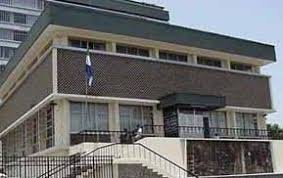By Lawrence Williams
The country’s trade deficit narrowed by 50.9 percent in the fourth quarter of 2023, from US$226.6mn in 2023Q3 to US$111.3mn in 2023Q4, largely as a result of higher export receipts and decreased import bills, the Bank of Sierra Leone (BSL) said in a statement released on Tuesday.
Additionally, or as a consequence thereof, the gross foreign exchange reserves of BSL also improved within the same period, covering 2.7 months of imports, from barely 2.3 months of imports, thanks to inflows from development partners and policy measures to stabilise the foreign exchange market.
Further, the bank said headline inflation is gradually plummeting, with rates falling from 54.59 percent in October 2023 to 42.59 percent in February 2024. This decline, the Monetary Policy Committee (MPC) says, can be attributed to the tight monetary policy stance of the BSL, stable exchange rates, and decreasing global commodity prices.
Despite this positive trend, potential risks to inflation remain, such as the proposed fiscal measures in the 2024 Finance Act and volatility in energy prices, the MPC noted.
While the MPC acknowledges the progress made in reserves management, it expresses concern that the reserves are still below the recommended threshold of at least 3 months of imports cover.
Nonetheless, the bank said that efforts are underway to boost reserves through initiatives to enhance key sectors of the economy with support from the BSL Agricultural Credit Facility, and negotiations with the IMF for a new Extended Credit Facility program.




